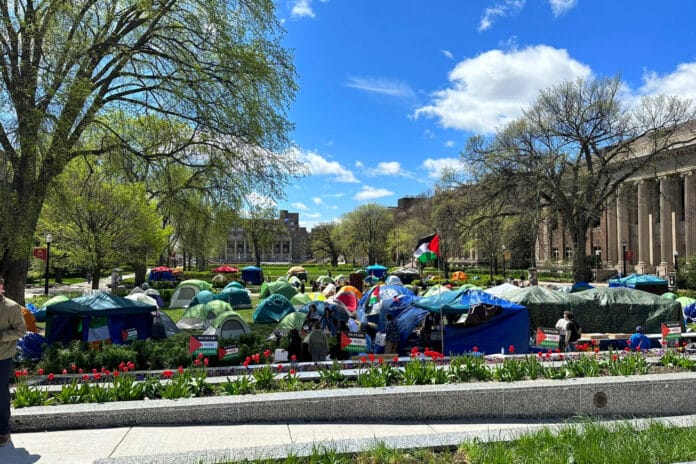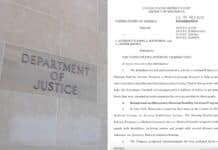
An encampment established at the University of Minnesota by pro-Palestinian demonstrators was disassembled after university leadership struck a deal with protesters. This development follows several days of growing protests at the University of Minnesota, and much larger protests at schools across the country.
In recent days, protesters demanding that colleges and universities divest from Israel have established encampments at institutions of higher learning across the country. The protests have gone on for days, and many have been arrested. Protests related to the ongoing conflict in the Middle East have also occurred at the University of Minnesota’s Twin Cities campus.
Earlier this week, a large gathering of protesters established an encampment at the Twin Cities campus in violation of school policy despite nine protesters being arrested for attempting to do the same just days before. The resulting encampment prompted university officials to close school buildings.
Instead of using police force to clear out the protesters, university officials decided to engage in negotiations. Today, Interim University President Jeff Ettinger announced the University of Minnesota struck a deal with the demonstrators.
According to the agreement, protesters agreed to disband the encampment. University officials agreed to provide information on university investments and gave protesters an opportunity to address the Board of Regents to “share your advocacy priorities” on May 10.
An anti-Israel encampment on the University of Minnesota campus remained in place for a 2nd night. Some involved have said it will be cleared this evening, according to @WatchDogUMN. pic.twitter.com/0JGH0TSa4B
— Alpha News (@AlphaNewsMN) May 1, 2024
The agreement also includes an amnesty provision for demonstrators. In short, the university has “recommended to UMPD that they not arrest or charge anyone for a criminal offense based on activities of the past few days if the encampment is removed tonight without incident, and the UMPD has confirmed that this is acceptable.”
The university also agreed that it would not pursue other disciplinary action against student or employee protesters. In exchange, demonstrators agreed not to interrupt upcoming finals and commencement activities.
SUBMITTED: U of M anti-Israel encampment enters 3rd day during finals week.
One mom: “It’s so frustrating to pay $30k a year and our students are the ones that have to accommodate these protesters! She wants out ASAP.”
Her daughter can’t study in the library & snapped this pic… pic.twitter.com/DLj3SXNvnt
— Liz Collin (@lizcollin) May 1, 2024
The agreement also says University of Minnesota leadership will meet with Jewish students on Thursday in an effort to “appreciate and support our Jewish student body as well.”
Buildings on the Northrop Mall of the University of Minnesota Twin Cities campus were reopened Thursday afternoon.
“While there is more work to do, and conversations are still planned with other student groups affected by the painful situation in Palestine, I am heartened by today’s progress,” said Interim University President Ettinger in announcing the agreement. “It grew out of a desire among those involved to reach shared understanding. While we do not condone tactics that are outside of our policies, we appreciate student leaders’ willingness to engage in dialogue. I value the challenging and healthy conversations we’ve had.”
Views from the encampment on day 3: it looks like campus facilities have put up a small fence to contain the spread of tents pic.twitter.com/95kMK3aYin
— Watch Dog UMN (@WatchDogUMN) May 1, 2024
Minnesota Rep. Marion Rarick, R-Maple Lake, denounced the amnesty portion of the agreement in a Thursday statement.
“While protesters have a First Amendment right to make their voices heard and peacefully protest, those who engaged in the unlawful behavior that resulted in the closure of campus buildings and major disruptions for students, faculty, and workers must be held accountable,” said Rep. Rarick. “Enforcing consequences for unlawful behavior and violations of campus policies is a reasonable expectation, and should not be a point of negotiation.”










